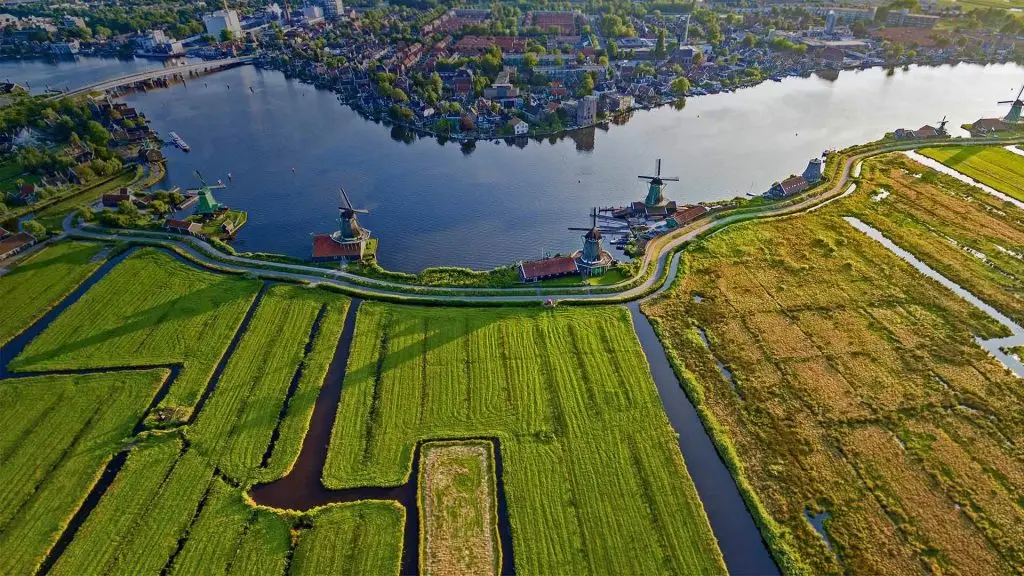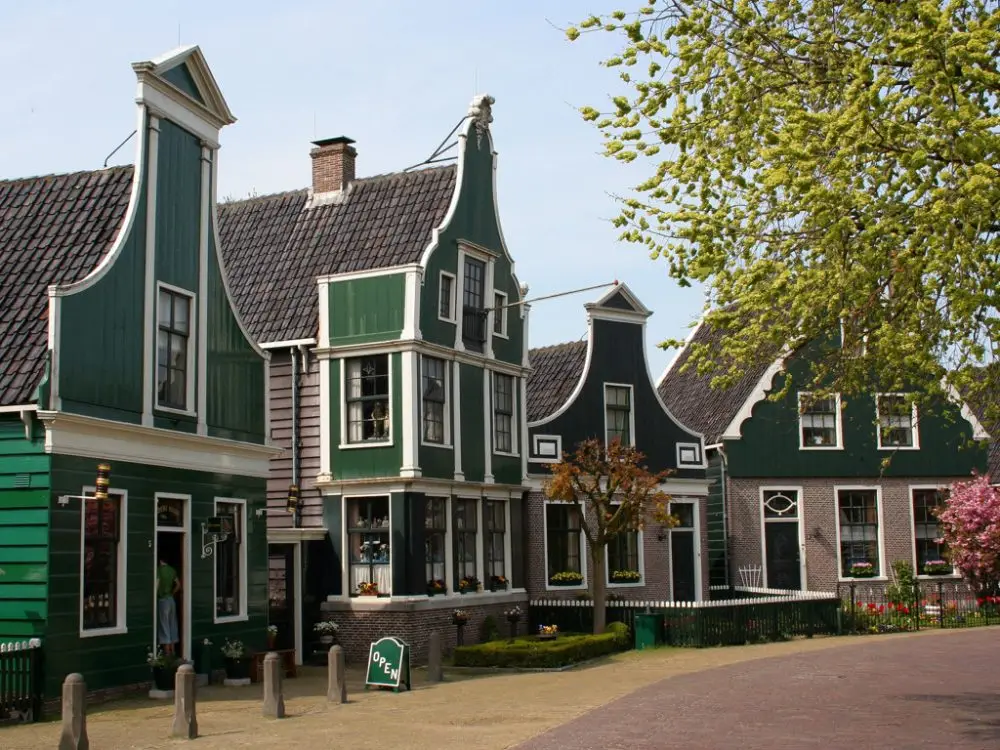The Netherlands consistently attracts the attention of emigrants with its high quality of social services and developed infrastructure. An important factor for moving to the country is the financial costs to be borne on a monthly basis. Let’s take a detailed look at how much a month of living in the Netherlands costs in 2025, highlighting key aspects of the budget and daily expenses.
Cost of living in the Netherlands: basic monthly costs
How much a month of living in the Netherlands costs depends on the city you choose. Amsterdam, Rotterdam and Utrecht are three popular destinations for foreigners, but prices vary greatly. Amsterdam is characterised by the highest cost of living. A family of three here has to spend from €4000 to €5000 per month, including rent, utilities, transport and groceries. Rotterdam residents spend a smaller amount – from €3500 to €4000, and Utrecht occupies the middle ground with costs in the region of €3700-4300.
Housing and utilities
The cost of living in the Netherlands is significantly increased by renting or buying a property. The average price for a flat of about 80 square metres in Amsterdam reaches €2000-2500. In Utrecht, similar accommodation costs €1600-2000, and in Rotterdam you can find an option for €1300-1800. Buying a property is not a budget option either, but the investment pays off with stability and price growth. The average cost of a square metre in Amsterdam is €7000-9000, in Rotterdam and Utrecht – from €5000 to €7000. Utilities, including heating, electricity, water and internet, add another €200-300 to the budget each month.
Expenses for food and meals
On average, the cost of food for one person is around €300-400 per month. A family of three spends up to €1000-1200. Albert Heijn, Jumbo, Lidl supermarkets remain the most popular shops where shoppers save up to 20% of their budget compared to smaller outlets. Average price for groceries:
- bread— €1,50–3,00;
- milk (1 litre) – €1-1.50;
- eggs (10 pcs.) – €2,50-3,50;
- cheese (1kg) – €8-15;
- meat (1 kg) – €10-20.
Lunch in a café costs around €10-15 per person, dinner in a mid-range restaurant from €25-30.
Transport costs in the Netherlands: how to organise travel around the country
 Transport costs in the Netherlands have a significant impact on the overall budget of how much it costs to live in the country for a month. This is a country with a developed infrastructure, where travelling is an integral part of everyday life. Bicycles and public transport serve as the main means, while motorised traffic also has its own peculiarities and costs.
Transport costs in the Netherlands have a significant impact on the overall budget of how much it costs to live in the country for a month. This is a country with a developed infrastructure, where travelling is an integral part of everyday life. Bicycles and public transport serve as the main means, while motorised traffic also has its own peculiarities and costs.
Bicycles are hugely popular in the Netherlands, and for good reason. Cycling in the country is so developed that it is often the main way of travelling for city dwellers. The cost of bicycle transport starts from €200 and up, depending on the model and quality. For example, standard bicycles cost around €300-500, while high-quality sport or electric variations cost from €800 to €1500 or more.
As for public transport, the Netherlands offers an extensive system with buses, trams and subways connecting all major cities and towns. Fares vary by region, but on average a monthly pass for all modes costs between €90 and €100. In Amsterdam, for example, a card worth around €100 per month will be required to travel. A single journey costs €3 on average, and for longer journeys you will need to factor in additional costs.
Buying your own car is already more expensive. A litre of petrol costs on average €2-2.20, which is considerably higher than in most other European countries. Monthly car insurance ranges from €50 to €150 depending on the region, type of car and driving experience. Parking also adds a sum to the costs. In major cities such as Amsterdam and Rotterdam, renting a parking space can cost between €200 and €300 per month, and in some cases, such as in the central parts of the regions, the service can cost €400 or more.
Health insurance and quality of health care
Health insurance in the country is compulsory for all citizens and residents. Lack of a certificate is punishable by fines that can reach up to €450 per year. The average cost of health insurance for one person is €120-150 per month. The figure may vary depending on the insurer, the chosen package of services and age. Medicine in the Netherlands is considered to be one of the best in the world, and insurance covers all basic services, including medical appointments, hospitalisation, in-patient treatment and emergency care.
The medical system in the Netherlands is represented by both public and private clinics. The former provide a wide range of services, including high-quality treatment, but often with longer waiting times. Private clinics provide faster access to specialists, but care is more expensive and often requires additional insurance coverage.
Immigration to the Netherlands: costs of documentation and residence permits
When it comes to the question of how much a month of living in the Netherlands costs, obtaining a residence permit (HND) or permanent residence permit (PRP) is an integral part of the move that affects the costs. There are several programmes available in the stanza, each with its own requirements and fees. One of the most common ways to obtain a residence permit is to buy a property or run a business.
There are a number of costs associated with obtaining a residence permit in the Netherlands. The initial processing of documents costs on average from €200 to €300. The amount includes fees and possible additional services. If you decide to extend your residence permit, you will need to pay from €100 to €200 every 1-2 years, depending on the situation. In case of obtaining a residence permit or citizenship, the costs increase significantly. Registration of permanent residence costs approximately €200, and preparation of documents for citizenship can cost €900 or more.
For foreigners wishing to invest in property or set up a business in the Netherlands, the procedure takes several months. It is important to take into account not only the processing fees, but also the possible costs of lawyers and consultants who can help simplify the process and avoid mistakes.
Neighbourhoods and their impact on the cost of living: How much does it cost to live in the Netherlands for a month?
Expense amounts vary by location. Amsterdam, for example, is divided into neighbourhoods with different pricing policies:
- Centrum is the most expensive option with accommodation starting from €2500 per month.
- Zuid is an upmarket neighbourhood popular with expats, with prices from €2000.
- West – lots of cafes, shops, flats from €1700.
- Noord is an affordable location with accommodation starting from €1500 per month.
Rotterdam and Utrecht have similar tendencies: the central areas are always more expensive than the outskirts.
Bottom line
 How much does it cost to live in the Netherlands for a month? The figure is above the European average, but in return for these costs, residents receive exceptional social services, security and career prospects. The cities of Amsterdam, Rotterdam and Utrecht offer the conditions for successful adaptation and comfortable living, making the Netherlands an attractive country for immigration in 2025.
How much does it cost to live in the Netherlands for a month? The figure is above the European average, but in return for these costs, residents receive exceptional social services, security and career prospects. The cities of Amsterdam, Rotterdam and Utrecht offer the conditions for successful adaptation and comfortable living, making the Netherlands an attractive country for immigration in 2025.
 en
en  ru
ru  de
de  ar
ar  es
es  nl
nl  hi
hi  fr
fr  it
it  pt
pt  el
el 









